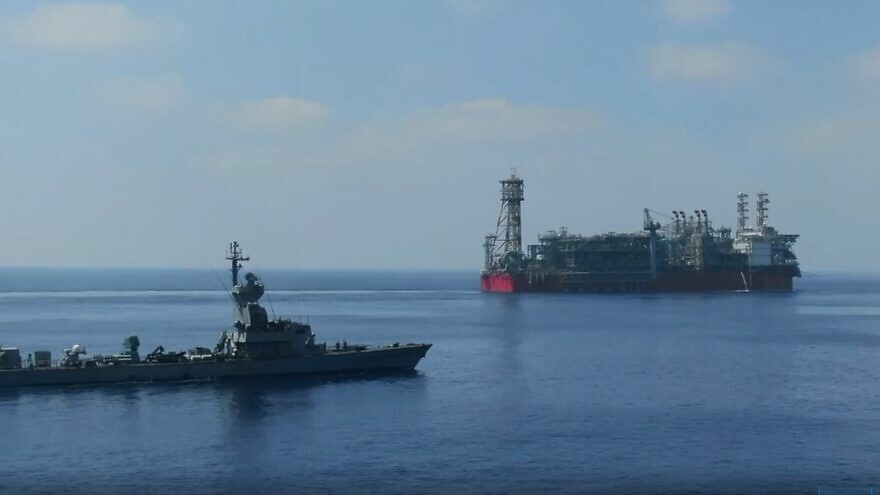Jerusalem said the project would emphasize Palestinian economic development and maintaining security in the region.
By JNS
Israel on Sunday green-lighted the development of a natural gas field located off the coast of the Hamas-ruled Gaza Strip.
Prime Minister Benjamin Netanyahu’s office said in a statement that the project would move forward “in the framework of the existing efforts between the State of Israel, Egypt and the Palestinian Authority (P.A.), with emphasis on Palestinian economic development and maintaining security stability in the region.”
The Prime Minister’s Office added that the project is “subject to coordination between the security services and direct dialogue with Egypt, in coordination with the P.A., and the completion of inter-ministerial staff work led by the National Security Council, in order to maintain the security and diplomatic interests of the State of Israel on the matter.”
State-run Egyptian Natural Gas Holding Company (EGAS) will reportedly develop the field, located some 30 km. (19 miles) off Gaza’s coast and estimated to hold more than 1 trillion cubic feet of natural gas.
The estimated cost of the initiative is $1.4 billion, with gas slated to begin flowing in early 2024, according to a November Washington Post report.
Israeli officials have been engaged in negotiations with Palestinian counterparts over the development of the Gaza Marine field, Channel 13 reported last month.
The discussions have been spearheaded by National Security Adviser Tzachi Hanegbi and Maj. Gen. Ghassan Alian—the IDF’s liaison to the Palestinians.
The matter was discussed during Israeli-Palestinian summits in Aqaba, Jordan, and Sharm el-Sheikh, Egypt, in February and March, respectively.
Following the latter summit, the parties released a joint communiqué that included a promise to “take the necessary steps towards improving the economic conditions of the Palestinian people” and “significantly enhance the fiscal situation of the Palestinian National Authority.”
The issue has been intermittently discussed over the years, and then-Israeli Prime Minister Yair Lapid, a day before the latest Nov. 1 election, approved a preliminary deal between Israeli, Egyptian and Palestinian officials to tap the resources.
Hanegbi confirmed his involvement in the talks but emphasized that “there will be nothing concerning infrastructure development” in Gaza until Hamas returns the bodies of IDF soldiers Oren Shaul and Hadar Goldin, who were killed in action during the 2014 Israel-Hamas war (“Operation Protective Edge”).
Hamas is also currently holding hostage Israelis Avera Mengistu and Hisham al-Sayed, both of whom suffer from mental illness and crossed into Gaza on their own accord nearly a decade ago.
“We can talk and plan, so [the Palestinians] understand the cost of the loss. It’s not only the matter of gas, there is infrastructure the whole world is ready to bolster in Gaza. We won’t allow this until the boys are returned,” said Hanegbi.
Last month, Israel and Palestinian Islamic Jihad (“Operation Shield and Arrow”) in Gaza fought a five-day conflict, during which the terrorist group fired more than 1,250 rockets at Israeli communities. The IDF responded by striking some 400 terrorist assets in Gaza.


